You want the best for your clients and their employees facing cancer and that starts with access to the latest knowledge.
Outcomes are dramatically better at National Cancer Institute (NCI)-Designated Comprehensive Cancer Centers, but only 20% of cases are treated there.1,2 That’s why AccessHope makes it easy to bring the latest expertise to employees by connecting their local oncologists with NCI subspecialists.
We proudly partner with NCI centers to remotely deliver expertise to employees and their families nationwide
Dana-Farber Cancer Institute
Emory Healthcare
Fred Hutch Cancer Center
Johns Hopkins Medicine
Northwestern Medicine
UT Southwestern Medical Center
Where breakthroughs begin.
City of Hope
City of Hope is a world renowned cancer research and treatment center based in southern California. It is a National Cancer Institute-designated comprehensive cancer center, in addition to being a founding member of the National Comprehensive Cancer Network, making it a national leader in advancing research and treatment protocols. For over a decade, City of Hope has been identified as one of the nation’s elite cancer hospitals by U.S. News & World Report.
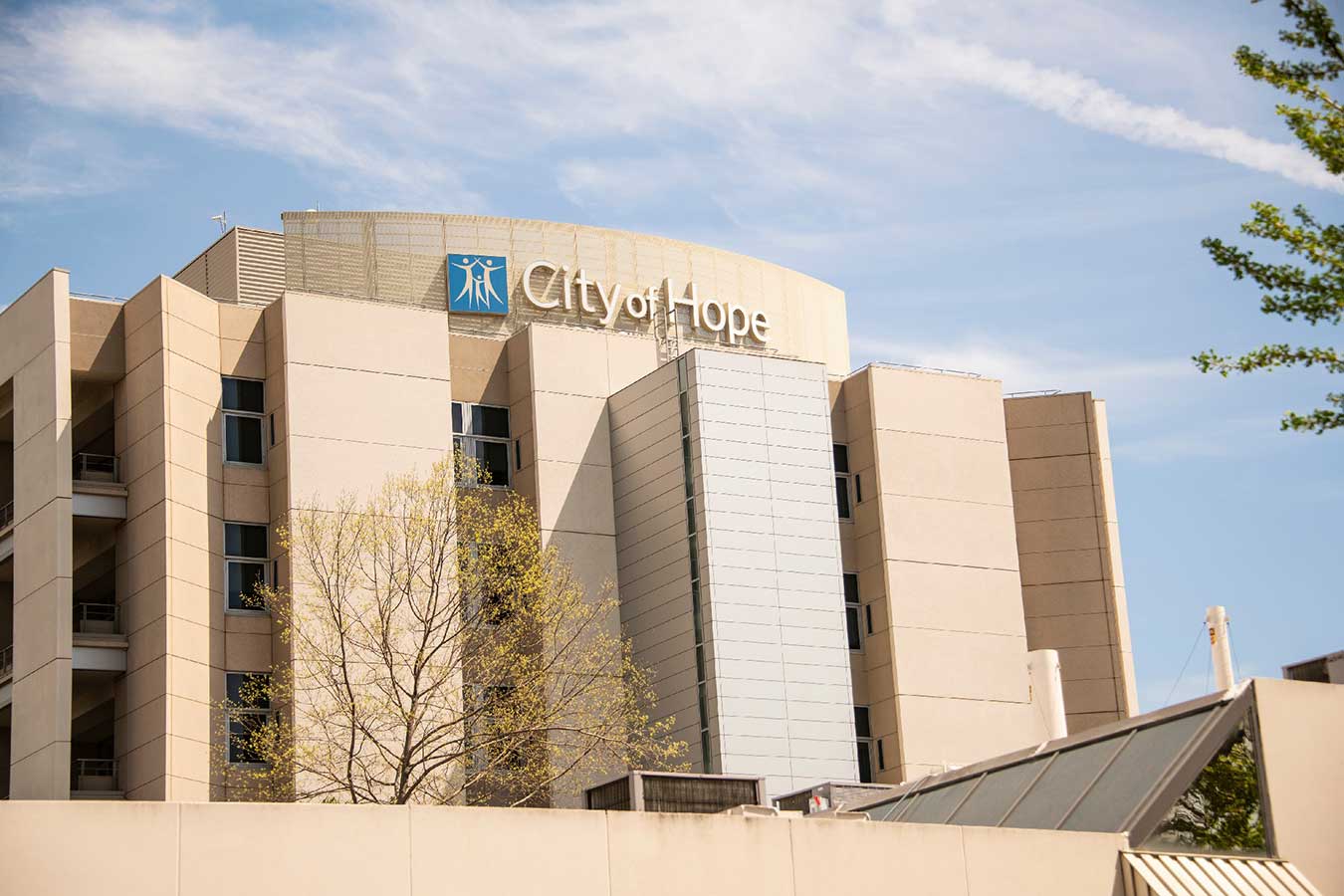

Dana-Farber Cancer Institute
Dana-Farber Cancer Institute in Boston, MA is a Harvard Medical School teaching hospital. It is the #1 ranked cancer hospital in New England by US News & World Report. Nationwide, it is the only cancer hospital to be ranked in the top 5 for both adult and pediatric oncology care. Dana-Farber is dedicated to a unique balance of cancer care and research, translating discovery into new therapies for patients around the world and offering more than 1,100 clinical trials.
Dana-Farber is a founding member of the Dana-Farber/Harvard Cancer Center (DF/HCC), an NCI-designated Comprehensive Cancer Center, a founding member of the National Comprehensive Cancer Network, the top academic recipient of grant funding from the National Cancer Institute (NCI), and has the most highly cited research of any U.S. cancer center.
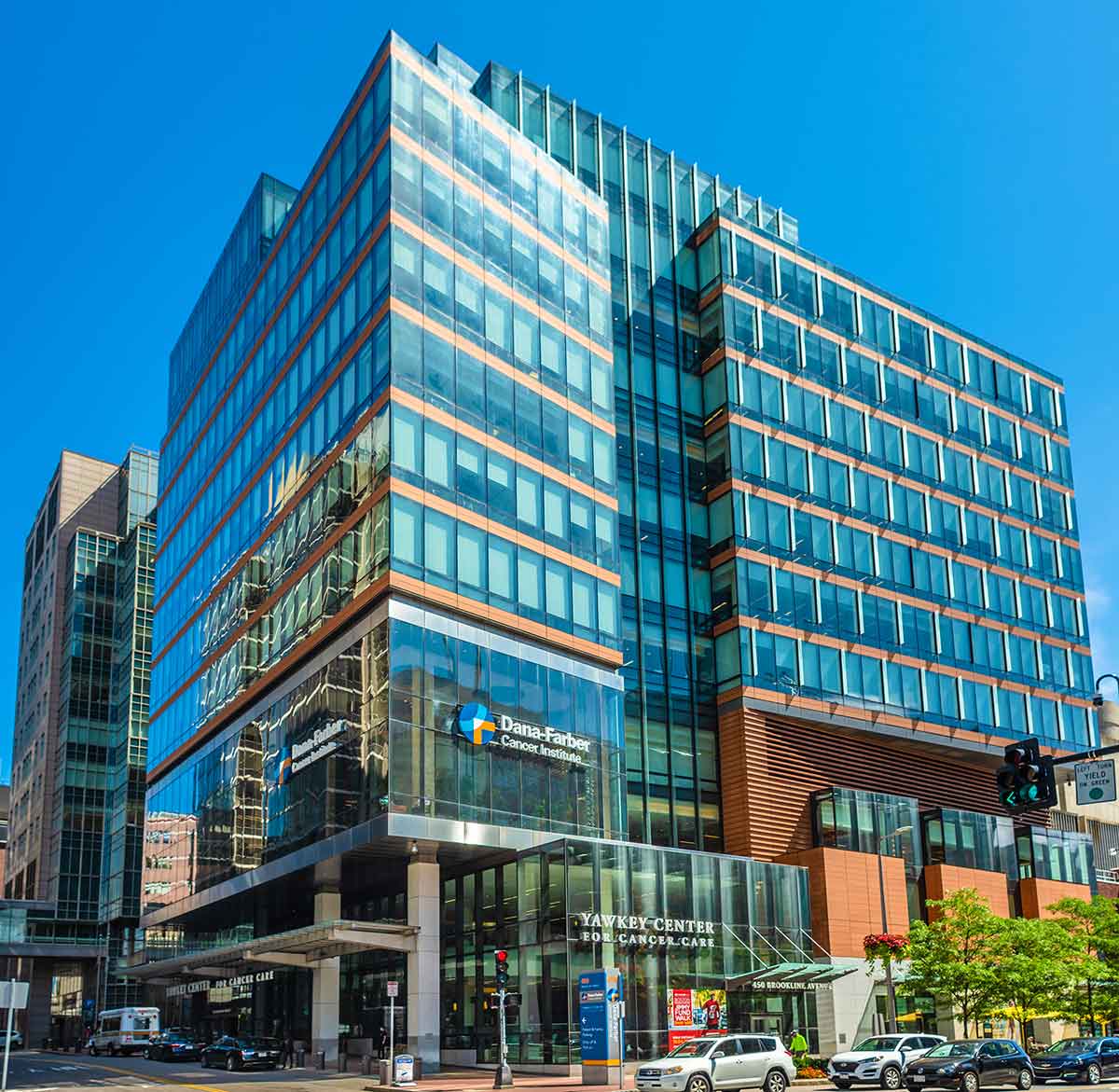
Emory Healthcare
Emory Healthcare, with more than 24,000 employees and 11 hospitals, is the most comprehensive academic health system in Georgia. System-wide, it has 2,796 licensed patient beds, more than 2,800 physicians practicing in more than 70 specialties, serving metro Atlanta with 250 locations. It also provides services to greater Georgia through a joint venture at St. Francis–Emory Healthcare Hospital in Columbus, 10 regional affiliate hospitals, and its clinically integrated physician network.
As the National Cancer Institute (NCI)-designated comprehensive cancer center for the state of Georgia, Winship Cancer Institute of Emory University discovers, develops and delivers some of the world's most effective ways to prevent, detect, diagnose and treat each patient's unique cancer. Winship leverages the depth and breadth of Emory University and collaborates with other NCI-designated cancer centers and leading cancer organizations. Winship investigators conducted more than 300 therapeutic clinical trials and enrolled more than 900 patients in 2020. Winship has more than 500 faculty and received $80 million in cancer research funding in 2020, $33 million of that from the NCI.
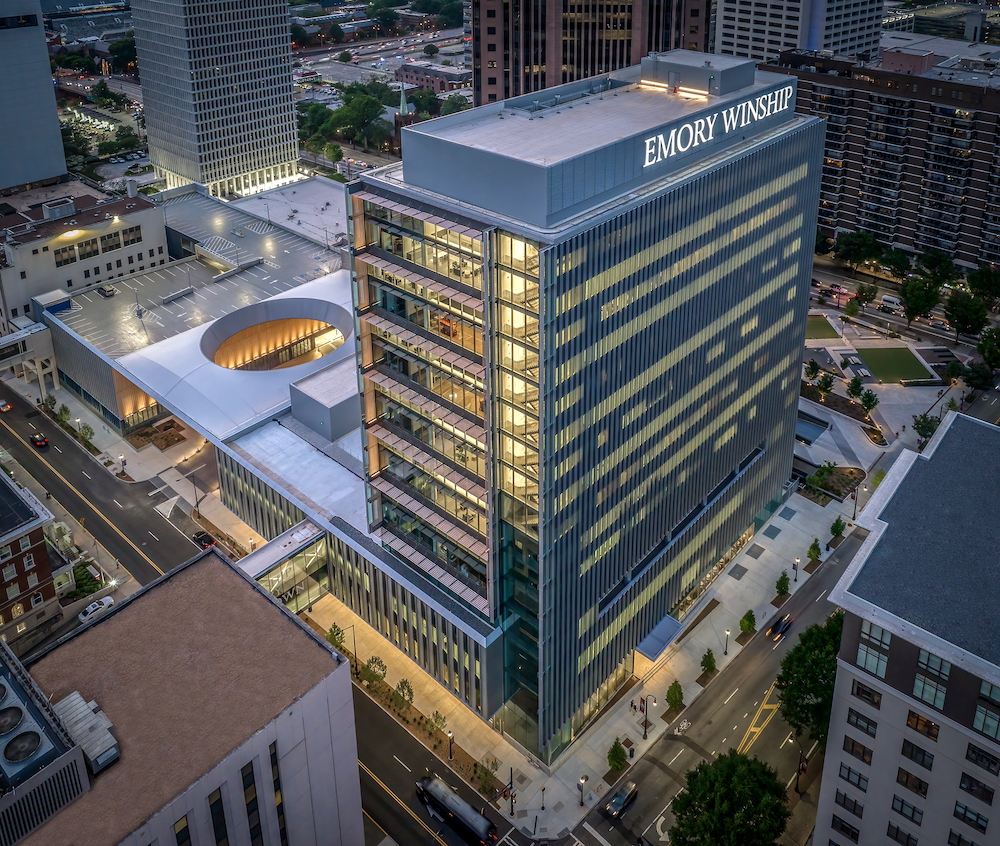

Northwestern Medicine
Northwestern Medicine is a nationally recognized health system that provides world-class care. Anchored by Northwestern Memorial Hospital, ranked No. 1 in Illinois and No. 9 in the nation by US News and World Report. Northwestern Medicine encompasses more than 200 locations including 10 hospitals, the Northwestern University Feinberg School of Medicine and The Robert H. Lurie Comprehensive Cancer Center.
Backed by the Lurie Cancer Center, Northwestern Memorial Hospital is ranked #9 in the nation by US News and World Report and is part of a select group of National Cancer Institute (NCI) designated Comprehensive Cancer Centers. Dedicated to overcoming cancer through scientific discovery, the Lurie Cancer Center provides compassionate, leading edge cancer care in a state of the art facility.


Fred Hutch Cancer Center
Fred Hutch Cancer Center combines adult cancer care and advanced scientific research, and has a history of discoveries that treat, cure and identify prevention strategies for cancer and infectious diseases. The organization was renamed in April 2022, following the merger of long-time partners, Fred Hutch Cancer Research Center and Seattle Cancer Care Alliance. Fred Hutch Cancer Center is an independent, nonprofit organization that serves as UW Medicine’s cancer program.
Fred Hutch has been a National Cancer Institute-designated cancer center since 1973. Global leadership in bone marrow transplantation, HIV/AIDS, immunotherapy and COVID-19 helped Fred Hutch earn recognition as one of the world’s leading cancer, infectious disease and biomedical research centers. Based in Seattle, Fred Hutch operates eight clinical care sites that provide medical oncology, infusion, radiation, proton therapy and related services, and has network affiliations with hospitals in five states.
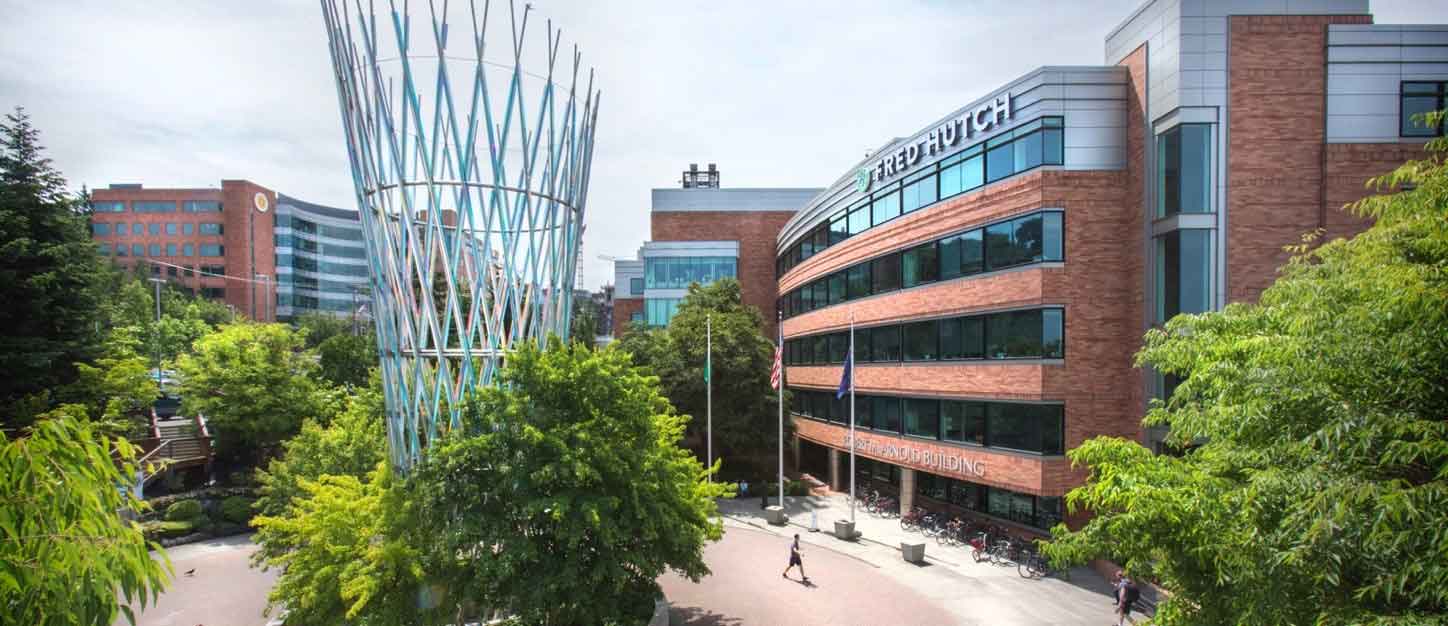

Kimmel Cancer Center
As part of the Johns Hopkins Medicine academic health system and Johns Hopkins University School of Medicine, the Kimmel Cancer Center has five locations in the Baltimore and Greater Washington, D.C., regions. Designated by the National Cancer Institute as one of the first comprehensive cancer centers in the country, its physicians and scientists are recognized leaders throughout the nation and the world.
The Kimmel Cancer Center understands that each patient is unique and it provides a tailored approach to care by multidisciplinary teams of specialists. Its patients have access to a large number of clinical trials and supportive care resources for themselves and their caregivers. From immunotherapy and proton therapy, to molecular tumor board-guided treatments, its physicians, nurses, and pharmacists are dedicated to providing the best care possible backed by innovative research.
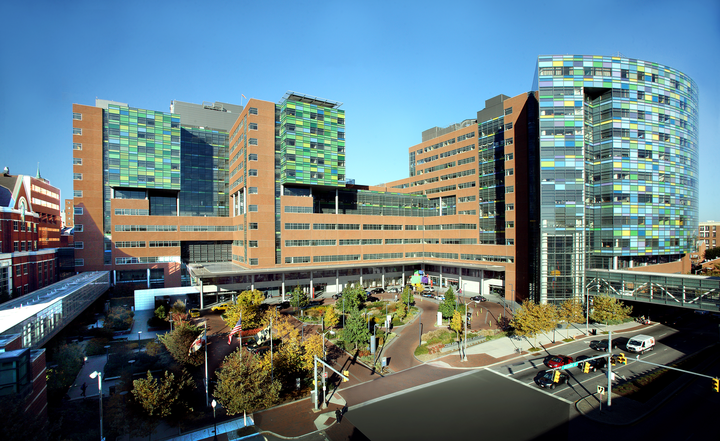

Harold C. Simmons Comprehensive Cancer Center
Harold C. Simmons Comprehensive Cancer Center is the National Cancer Institute-designated Comprehensive Cancer Center of UT Southwestern Medical Center in Dallas, Texas. With 15 multidisciplinary teams interconnected to bring broad expertise to bear on challenges unique to different cancers, our providers facilitate access to compassionate, quality, leading-edge care including the latest in clinical trials. Simmons Cancer Center is a member of the National Comprehensive Cancer Network and ranked among the top 20 cancer centers in the nation by U.S. News & World Report.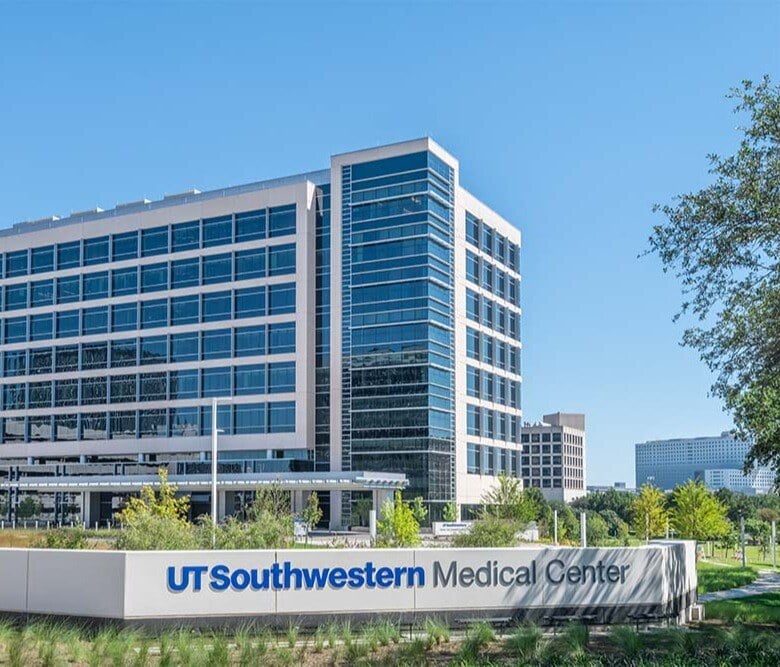
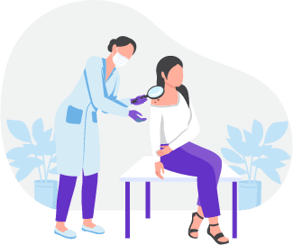
Cancer isn’t one disease
We now know there are hundreds of cancer types and variants, and optimal treatments can be radically different depending on factors like genetics and stage. AccessHope supports your clients’ employees and their oncologists with expertise related to their specific case, to make a real, measurable, tangible difference.
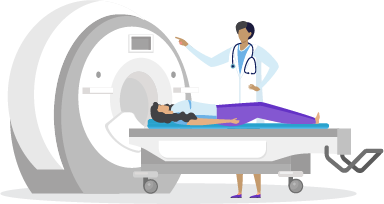
Cancer is costing your clients
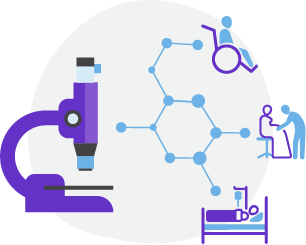
Cancer research isn’t reaching everyone
Cancer research is evolving rapidly, but that doesn’t mean it’s reaching everyone equally. Cancer treatments and outcomes can vary by zip code, race, ethnicity, socioeconomic status, sexual orientation and more.4 AccessHope allows your clients to ensures NCI expertise is available to every employee facing a cancer diagnosis, no matter who they are or where they live.
How we make a difference
Together we can change the fight against cancer.
With AccessHope, your clients can:

Potentially influences over 90% of cases
AccessHope’s cancer support services enable employers to offer their employees access to expert reviews that influence more than 90% of cancer cases.

Join millions of members who trust AccessHope
700+ organizations, including more than 70+ Fortune 500 companies, entrust us to provide leading National Cancer Institute expertise to millions of people.

Provide better member experiences with a world-class NPS
Employees who contact AccessHope’s Cancer Support Team experience high-quality service with a world-class Net Promoter Score of 79 (compared to a healthcare industry average score of 5-15).

Benefit from the latest cancer knowledge
Access to the latest research from the world’s foremost cancer centers means employees can receive insights on the latest and most appropriate testing, treatments and clinical trials — regardless of where they live.
Our AccessHope team is very flexible, innovative, and solution-oriented. They bring forth expertise and thought-provoking conversations that drive high-end outcomes needed to support health equity and wrap-around services for cancer care.
The AccessHope team is a true partner. They care about what we care about and always try to help us resolve even some of the most challenging asks. Most importantly, they listen and make us feel valued as a client. We are always reaching higher and for more, and they are along for the ride. Together, we are making a difference.
The proof is in the
(peer-reviewed) paper
Our subspecialists provided evidence-based recommendations that had the potential to influence the treatment plan in approximately 93% of cases.6
What is required from me and my client to implement AccessHope?
For our employee-initiated Expert Advisory Review and Cancer Support Team, AccessHope needs an eligibility file.
For our algorithm-based Accountable Precision Oncology service, AccessHope works with health plan/third-party administrator (TPA) operations to proactively initiate case reviews by clinical experts.
How are you different than other cancer support services?
AccessHope’s employer benefit gives employer self-funded plans and the treating physicians of employees remote access to renowned cancer expertise through foundational partnerships with NCI–Designated Comprehensive Cancer Centers, allowing a 100% focus on cancer.
We bring advanced expert knowledge to advise on clinical aspects of a proposed treatment plan and provide evidence-based recommendations including personalized precision medicine opportunities, as well as appropriate clinical trial information and support services, regardless of an employee’s location.
How is AccessHope different than Centers of Excellence (COE) services?
COE services provide medical care to cancer patients; AccessHope does not. AccessHope’s business model remotely connects (a) employees to cancer support services from expert oncology nurses and support staff via our Cancer Support Team; (b) employees’ community oncologists (via our Expert Advisory Review service) and benefit plans (via our Accountable Precision Oncology service) to the latest expertise from NCI–Designated Comprehensive Cancer Centers, eliminating the need to travel for leading cancer expertise and leaving their care decisions 100% in the hands of their local treating physician. Our program supports all cancer types and stages along the member’s journey, while they stay close to home with their local support system.
How are you different than second opinion or expert medical opinion (EMO) services?
Unlike EMO solutions that provide written case reports to members, AccessHope specialists deliver a detailed report on each unique cancer case to the member’s plan or their community oncologist and follow up with an offer of a peer-to-peer clinical consultation call to discuss the evidenced-based recommendations. AccessHope is focused solely on supporting cancer cases with the latest knowledge from NCI centers to help improve quality of life and health outcomes for more people with cancer.
Are community oncologists willing to collaborate with your subspecialists?
Yes. AccessHope experts offer recommendations for improvement in 93% of cancer cases in which we are asked to contribute. In 2 out of 3 cases, at least one recommendation to change treatment was implemented.
In fact, our innovative model of remote expert case reviews was recently validated by a peer-reviewed study in the medical journal JCO Oncology Practice.
How is AccessHope addressing cancer health disparities?
AccessHope’s remote expert reviews addresses disparities by providing access to NCI-Designated CCC expertise regardless of the employee’s geographic location. Highly specialized hospitals like NCI-Designated CCCs have been shown in a study to have higher survival rates over 5 years versus community hospitals.1
A recent population-based, retrospective study of 5,137 cases found that the most socioeconomically disadvantaged patients were more likely to have recommended changes in cancer treatment. The research highlights the impact of AccessHope's remote consultations on addressing healthcare disparities.
Reference
1 Pfister DG, Rubin DM, Elkin EB, et al. Risk adjusting survival outcomes in hospitals that treat patients with cancer without information on cancer stage. JAMA Oncol. 2015;1(9)1303-1310.
How do you provide expertise to employees with cancer? Do they need to travel?
AccessHope services do not require members to travel, but instead provide remote access to leading-edge insights.
How do you handle member privacy?
AccessHope values members’ privacy. All employee information is transmitted, used and stored securely, according to applicable HIPAA guidelines.
Featured Articles
Cancer Health Disparities - The Harsh Truth ...
A troubling gap exists between cancer treatment and cancer outcomes based on race, ethnicity, socioeconomic status, sexual orientation, and other characteristics.
Read moreReferences:
1 National Cancer Institute. Data table 3: Reportable patients/participation in therapeutic studies. National Institute of Health Web site. https://cancercenters.cancer.gov/DT/DT3. Accessed June 4, 2021.
2 American Cancer Society. https://www.cancer.org/content/dam/cancer-org/research/cancer-facts-and-statistics/annual-cancer-facts-and-figures/2020/cancer-facts-and-figures-2020.pdf. Accessed September 8, 2022.
3 Business Group on Health. 2023 Large Employers’ Health Care Strategy and Plan Design Survey. August 2022. Available at: https://www.businessgrouphealth.org/ resources/2023-large-employers-health-care-strategy-survey-intro
4 American Association for Cancer Research. AACR Cancer Disparities Progress Report 2020. https://cancerprogressreport.aacr.org/wp-content/uploads/sites/2/2020/09/AACR_CDPR_2020.pdf. Published 2020. Accessed October 6, 2020.
5 West HJ, Tan YA, Barzi A, Wong D, Parsley R, Sachs T. Novel program offering remote, asynchronous subspecialist input in thoracic oncology: Early experience and insights gained during the COVID-19 pandemic [published online ahead of print December 3, 2021]. JCO Oncology Practice. doi:10.1200/OP.21.00339